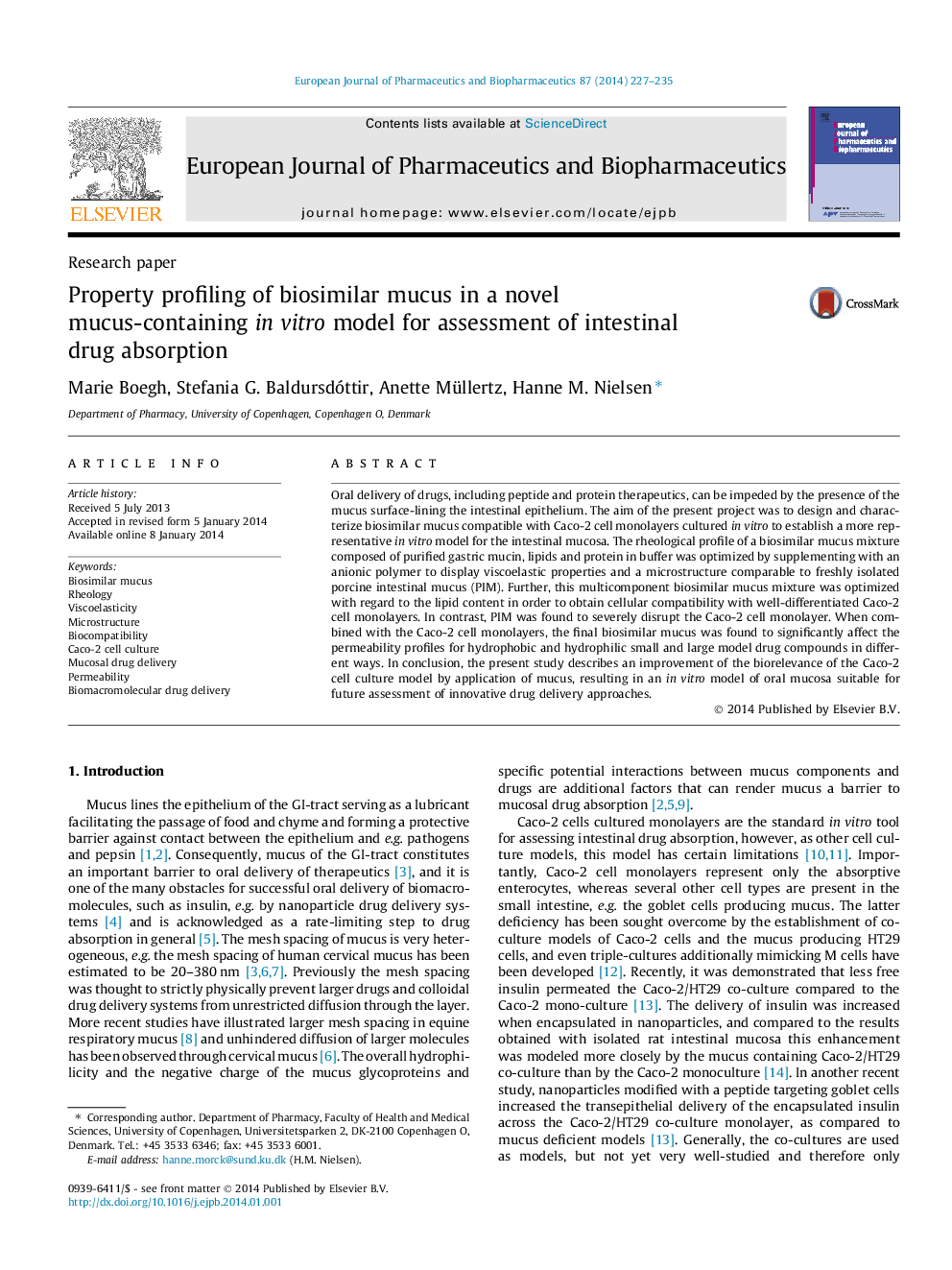| Article ID | Journal | Published Year | Pages | File Type |
|---|---|---|---|---|
| 2083554 | European Journal of Pharmaceutics and Biopharmaceutics | 2014 | 9 Pages |
Oral delivery of drugs, including peptide and protein therapeutics, can be impeded by the presence of the mucus surface-lining the intestinal epithelium. The aim of the present project was to design and characterize biosimilar mucus compatible with Caco-2 cell monolayers cultured in vitro to establish a more representative in vitro model for the intestinal mucosa. The rheological profile of a biosimilar mucus mixture composed of purified gastric mucin, lipids and protein in buffer was optimized by supplementing with an anionic polymer to display viscoelastic properties and a microstructure comparable to freshly isolated porcine intestinal mucus (PIM). Further, this multicomponent biosimilar mucus mixture was optimized with regard to the lipid content in order to obtain cellular compatibility with well-differentiated Caco-2 cell monolayers. In contrast, PIM was found to severely disrupt the Caco-2 cell monolayer. When combined with the Caco-2 cell monolayers, the final biosimilar mucus was found to significantly affect the permeability profiles for hydrophobic and hydrophilic small and large model drug compounds in different ways. In conclusion, the present study describes an improvement of the biorelevance of the Caco-2 cell culture model by application of mucus, resulting in an in vitro model of oral mucosa suitable for future assessment of innovative drug delivery approaches.
Graphical abstractFigure optionsDownload full-size imageDownload high-quality image (199 K)Download as PowerPoint slide
